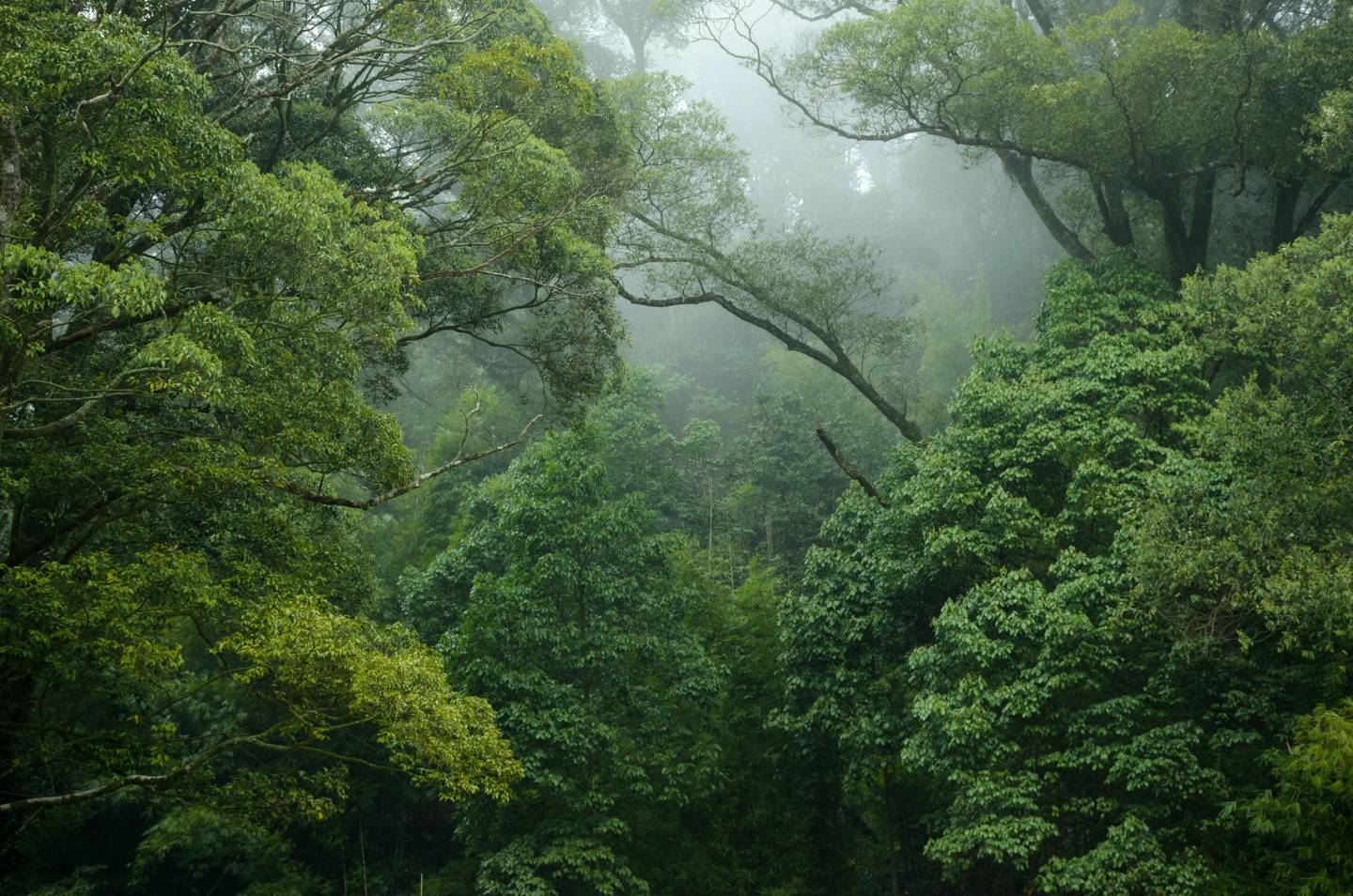Từ Vựng Bài Đọc The Accidental Rainforest
Xem danh sách từ vựng Vocabulary của đề The Accidental Rainforest được lấy từ cuốn Practice Test Plus 2 - Test 5-Passage 3. Phần từ vựng IELTS của bài chứa bộ từ, bao gồm phát âm, định nghĩa, ví dụ và cả hình ảnh sẽ giúp thí sinh IELTS dễ hiểu nội dung của đề bài hơn
conservationist
/ˌkɑnsərˈveɪʃənɪst/
(noun). A person who advocates or acts for the protection and preservation of the environment
ecologist
/ɪˈkɑləʤɪst/
(noun). An expert in or student of ecology.
anarchy
/ˈænərki/
(noun). a situation in a country, an organization, etc. in which there is no government, order or control
exotic
/ɪgˈzɑtɪk/
(adj). originating in or characteristic of a distant foreign country.
indigenous
/ɪnˈdɪʤənəs/
(adj). Originating or occurring naturally in a particular place
endemic
/ɛnˈdɛmɪk/
(adj). regularly found among particular people or in a certain are
coexist
/ˌkoʊəgˈzɪst/
(verb). exist at the same time or in the same place.
rainforest
/ˈraɪnˌfɔrəst/
(noun). a thick forest in tropical parts of the world that have a lot of rain
tropical
/ˈtrɑpɪkəl/
(adj). Of, typical of, or peculiar to the tropics.
constituent
/kənˈstɪʧuənt/
(noun). a member of a constituency.
complex
/ˈkɑmplɛks/
(adj). Consisting of many different and connected parts
emerge
/ɪˈmɜrʤ/
(verb). move out of way and become visible
niche
/nɪʧ/
(noun). a shallow recess, especially one in a wall to display a statue or other ornament
pollinator
/ˈpɑləˌneɪtər/
(noun). something, such as an insect, that carries pollen from one plant or part of a plant to another
disperser
/dɪˈspɜrsər/
(noun). a type of mixer used to rapidly break apart lumps of powdery material, uniformly distributing and wetting them in a liquid.
microbe
/ˈmaɪˌkroʊb/
(noun). a microorganism, especially a bacterium causing disease or fermentation.
evolve
/ɪˈvɑlv/
(verb). develop gradually and in distinct stages
evolutionary
/ˌɛvəˈluʃəˌnɛri/
(adj). connected with evolution; connected with gradual development and change
framework
/ˈfreɪmˌwɜrk/
(noun). A basic structure underlying a system, concept, or text
ecosystem
/ˈikoʊˌsɪstəm/
(noun). a biological community of interacting organisms and their physical environment
adornment
/əˈdɔrnmənt/
(noun). a thing which adorns or decorates; an ornament
structural
/ˈstrʌkʧərəl/
(adj). relating to or forming part of the structure of a building or other item.
instant
/ˈɪnstənt/
(adj). happening or coming immediately.
plausible
/ˈplɔzəbəl/
(adj). eeming reasonable or probable >< unreasonable, improbable (không có khả năng)
supposedly
/səˈpoʊzədli/
(adv). According to what is generally assumed or believed à seemingly, apparently
pristine
/ˈprɪstin/
(adj). In its original condition
civilisation
/ˌsɪvəlɪˈzeɪʃən/
(noun). a state of human society that is very developed and organized
authority
/əˈθɔrəti/
(noun). A person or organization having political or administrative power and control
misguided
/mɪsˈgaɪdɪd/
(adj). wrong because you have understood or judged a situation badly
extinct
/ɪkˈstɪŋkt/
(adj). (of a species, family, or other larger group) having no living members
urgency
/ˈɜrʤənsi/
(noun). Importance requiring swift action
enigma
/ɪˈnɪgmə/
(noun). a person, thing or situation that is mysterious and difficult to understand
chunk
/ʧʌŋk/
(noun). a thick solid piece that has been cut or broken off something
caterpillar
/ˈkætəˌpɪlər/
(noun). a small creature like a worm with legs, that develops into a butterfly or moth (= flying insects with large, sometimes brightly coloured, wings)
beetle
/ˈbitəl/
(noun). an insect, often large and black, with a hard case on its back, covering its wings
feature
/ˈfiʧər/
(noun). a distinctive attribute or aspect of something.
artificial
/ˌɑrtəˈfɪʃəl/
(adj). made or produced to copy something natural; not real
interfere
/ˌɪntərˈfɪr/
(verb). take part or intervene in an activity without invitation or necessity
slope
/sloʊp/
(noun). an area of land that is part of a mountain or hill
shrub
/ʃrʌb/
(noun). a woody plant which is smaller than a tree and has several main stems arising at or near the ground
roaring success
/ˈrɔrɪŋ səkˈsɛs/
(noun). a very great success
reconsider
/ˌrikənˈsɪdər/
(verb). consider (something) again, especially for a possible change of decision regarding it.
fern
/fɜrn/
(noun). a plant with large delicate leaves and no flowers that grows in wet areas or is grown in a pot. There are many types of fern
trigger
/ˈtrɪgər/
(verb). cause (an event or situation) to happen or exist
garrison
/ˈgærɪsən/
(noun). a group of soldiers living in a town or fort to defend it; the buildings these soldiers live in
packet
/ˈpækət/
(noun). a small paper or cardboard container in which goods are packed for selling
cloak
/kloʊk/
(verb). to cover or hide something
prolific
/proʊˈlɪfɪk/
(adj). producing much fruit or foliage or many offspring.
sparse
/spɑrs/
(adj). only present in small amounts or numbers and often spread over a large area
luxuriant
/ləgʒˈəriənt/
(adj). growing thickly and strongly in a way that is attractive
tenet
/ˈtɛnət/
(noun). one of the principles on which a belief or theory is based
ragbag
/rægbæg/
(noun). a collection of things that appear to have little connection with each other
proper
/ˈprɑpər/
(adj). of the required type; suitable or appropriate
characterise
/ˈkærɪktəraɪz/
(verb). describe the distinctive nature or features of.
invasive
/ɪnˈveɪsɪv/
(adj). spreading very quickly and difficult to stop
earmark
/ˈɪrˌmɑrk/
(verb). to decide that something will be used for a particular purpose, or to state that something will happen to somebody/something in the future
irony
/ˈaɪrəni/
(noun). the amusing or strange aspect of a situation that is very different from what you expect; a situation like this


